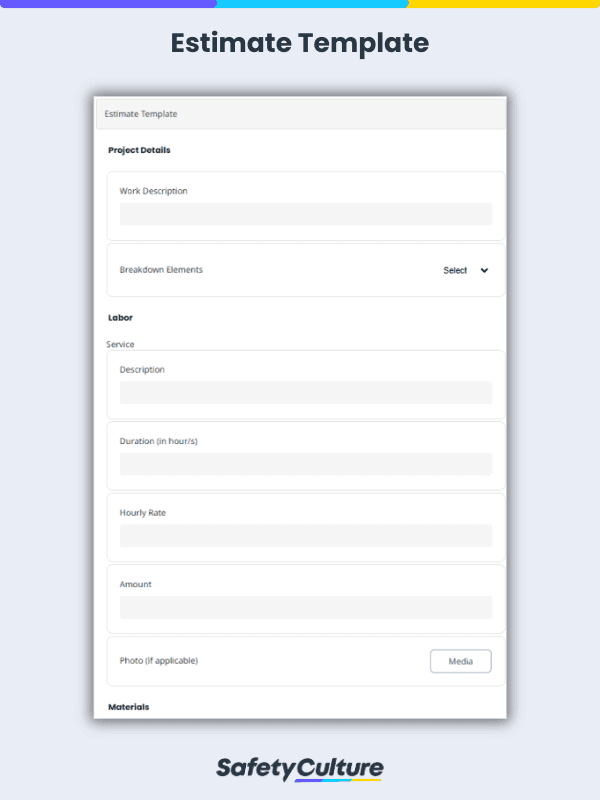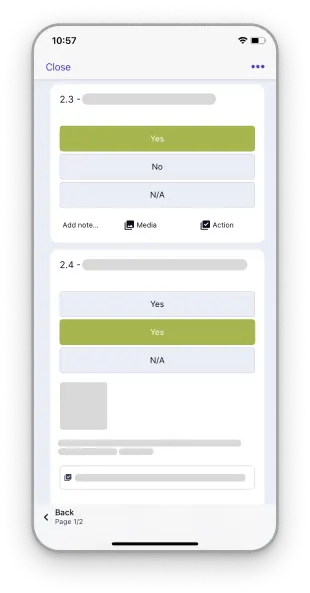What is an Estimate Template?
An estimate template is a tool used by contractors to easily show clients a quote of expected expenses for a project or job. It usually includes the work description, list of products and services, overall price, payment terms, and validity period. In the construction industry, estimate templates help break down the total cost by itemizing materials and labor with the required licenses and other fees. Making estimates using free templates enables contractors to efficiently provide presentable and professional-looking quotes.
Estimate Template vs Estimate Sheet
While an estimate template is also often referred to as an estimate sheet, there is a difference between the two. When writing an estimate, cost estimators may fill out a template which can come in many forms such as PDF or Excel files. On the other hand, an estimate sheet specifically refers to a type of estimate template in the form of Excel or Google sheets. In some instances, it already contains certain formulas to make it easier for users to generate estimates.
Different Types of Estimate Templates
One of the most common problems when making an estimate is a lack of clarity in the scope of work, especially for large infrastructure projects. Construction contractors and professional service providers alike look for particular templates that meet their company requirements, branding, and customer needs. Apart from their file format, estimate templates also come in various kinds which can be categorized by general use, industry operations, and specific application:
Type 1: General Use
Estimate templates that comprise the general use category covers the most basic elements of estimation such as the list breakdown, total cost, and payment terms. They are widely used for a quick and simple cost estimation of a job, project, or service. Since these templates generally apply to any type of work to be done, most entrepreneurs and employees consider them for initial use.
Type 2: Industry Operations
Contractors operating in distinct economic sectors such as construction and professional services utilize estimate templates that adhere to certain industry standards. For example, the American Society of Professional Estimators (ASPE) published the Standard Estimating Practice (SEP) as a reference manual on estimating construction projects. Explaining an estimation classification based on five levels of accuracy, construction estimate templates involve industry-specific components like schematic designs and detailed specifications.
More examples of these templates cover business operations in auto or car repair servicing, home repair and remodeling, landscaping, commercial cleaning, and demolition, among others.
Type 3: Specific Application
This type likely accounts for the most number of estimate templates available in the market. They pertain to exact use cases within a particular industry, addressing a more specific area of cost estimates. Flooring, siding, drywall, painting, and roofing estimate templates are specific applications of construction, home repair, or remodeling.
Other examples include snow removal and pressure washing estimate templates under the commercial cleaning industry and lawn care and tree trimming estimate templates under the landscaping industry. Essentially, they constitute a clearly defined scope of work so these templates deal with case-specific information such as pricing per square foot on top of specialized services performed on the area covered.



